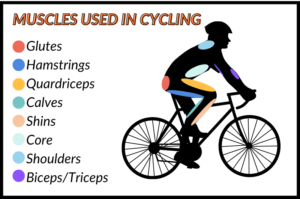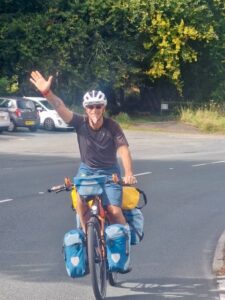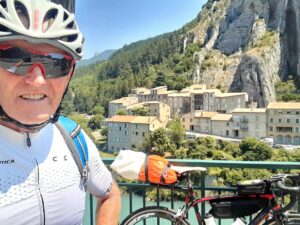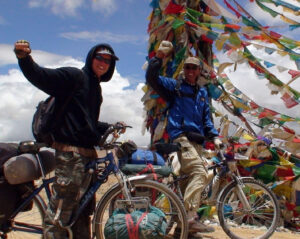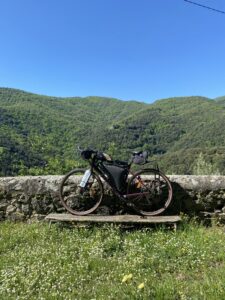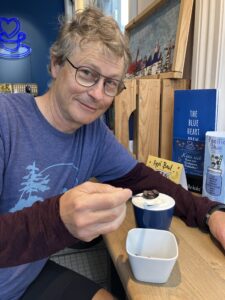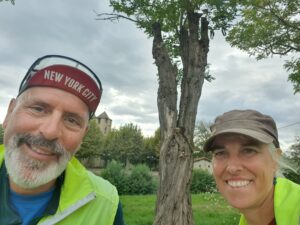A long, 1000+ mile cycling adventure is one of the best ways to soak yourself in the beauty of this world. But here’s the fact: biking over a thousand miles is not always easy. And many people are right when they say you can never fully prepare yourself for a ride like that.
But that statement does not take away the importance of preparation – in fact, it adds to it. It is true that several things in your multi-day tour will be out of your control, and that is precisely why you should perfect the things that are in your control. If you are contemplating a 1000+ mile ride, being physically and mentally prepared is essential. Here’s how to do it.
The Physical Preparation
Most bikers will agree that hopping on your bike with zero training and riding a thousand miles isn’t a great idea, even though some people have done it. The human body is capable of amazing things, but that needs equally amazing preparation.
Some people believe that regularly going on long rides is the only way to train for a long bike-touring adventure. But while hundred-mile weekend rides definitely help, experts say it may not be sufficient.
When it comes to your body, there are multiple aspects of fitness that you can improve in order to have a smooth journey. Here’s a brief overview.
Stamina, Strength, and Flexibility
- Stamina: Also called endurance (because you “endure”), stamina is a measure of how long you can keep biking. It is mostly a measure of your heart’s health, and can be increased by gradually increasing endurance activities like cycling, running, swimming, etc. If you are looking to ride more than a thousand miles, spending a few months doing multiple smaller tours is usually a good way to build your stamina.
- Strength: AKA power, strength is your ability to push harder. Strength will help you conquer hills and mountains, and is usually related to your muscles. Cyclists often risk injury when exerting too much pressure on their muscles without strengthening them. You can build muscle strength by lifting weights, preferably in a gym. It is a good idea to work on targeted muscles, like the thighs, calves, core, and arms. Here’s a graphic that shows the muscles that cycling engages.
- Flexibility: An often overlooked aspect, the flexibility of your body also decreases your risk of injury, while increasing the range of motion of your joints and muscles. It also improves blood flow and overall athletic performance. One of the best activities for improving muscle flexibility is yoga, which also happens to improve your focus and overall mental health.
The key to improving your fitness in the above three aspects is to do it gradually. When training for endurance rides, consistency beats intensity – riding a few dozen miles regularly beats riding a hundred miles once a month.
Another important rule to follow is not to over-exert yourself right before the journey. Endurance racing pros often take a full week off before a multi-day race, allowing their body to recover from previous training.
Nutrition
There is a reason pro-cyclists have meal experts who design and prepare meals suitable to the grueling needs of bike races. And while touring and racing are different, they are similar in many ways. What you eat during your training is almost as important as what you eat on your tour.
Everybody’s body is different. Learn to understand how your body functions – hit the right balance of carbs, protein, and fiber. Carbs will boost your energy, helping you go farther, while protein will help build muscles over time. Eating more fiber on off days will keep the body light while improving digestive health. Most experts swear by carb-loading on the last few days before the tour begins.
If you have any existing health conditions, consult your physician before embarking on a challenging tour.
Other Aspects
There are several other aspects in which you can prepare your body for a long bike tour. Try to gradually put your body through experiences it would encounter on the journey. For example, if you are going to ride in cold terrains, try sleeping with the heating turned down, or taking cold showers.
You can even familiarize your body with your sleeping gear by using it at home or on shorter tours. Nobody wants to shiver through a night in the middle of nowhere just because they bought the wrong sleeping bag. Same stands true for the rest of your gear. When you finally start your journey of 1,000 or more miles, you want to be totally familiar with everything on your bike and your body.
Lastly, your bike should feel like an extension of your body. Get used to it by biking frequently. Adjust your bike to your body, maybe even getting a professional bike fit. Bike fits are severely underrated – on a long ride, even a millimeter of incorrect saddle position can translate to seriously sore muscles.
The Mental Preparation
Among the bikers who quit halfway through a tour, a majority of them do so from the mental pressure of it. Cycling long distances provides some incredible experiences, but it can also regularly put your mind through tough times. Here are a few ways to prepare mentally for a 1,000+ mile ride.
- Don’t overplan: Bike riding over long distances is about discovering things and making unexpected memories. This can only happen when you lose some sense of control. No matter how much you plan your ride, there will always be elements of surprise – both pleasant and unpleasant. Cyclicts who insist on having and following a strict plan are more easily frustrated when the plan deviates. Be ready for detours, flat tires, and a dozen other unexpected things.
- Embrace minimalism: When your bike becomes your home for multiple days, you are forced to live with a fraction of the comforts that you usually enjoy. For the duration of your journey, you will have to give up several of your daily material comforts – from your coffee machine and comfy beds to even hot food. Making this shift gradually before you leave on the ride is easier than making it suddenly.
- Get used to slowing down: A ride of a thousand miles means there will sometimes be long hours of pedaling – when your body does most of the work and the brain is forced to sit idle. With the easily available distractions around us everyday, studies show that our minds are becoming increasingly restless. As such, riding for extended periods of time with nothing else to do can sometimes be challenging – especially when the roads aren’t particularly scenic.
You can prepare for this by slowing down your mind a few days before you set on your adventure. In this regard, it can help to occasionally stay away from your TV or smartphone, or going on long walks with nothing to distract. A lot of endurance athletes report that meditation also helps in this respect.
Wrapping It Up
A bike ride that covers more than a thousand miles is almost always an extraordinary experience. It creates lifelong memories and transforms your perspective of this world. Riders who have clocked over 1,000 miles in a single ride always have some of the best stories to tell, including how time slows down and everything feels a lot more meaningful in our otherwise chaotic world.
But, however fulfilling the journey, it comes with its share of difficulties. Thankfully, preparing your body and mind systematically before embarking on such an adventure can reduce the unpleasant experiences, while maximizing the joy of it.
Preparing for a 1000+ mile ride is a lot more than setting up your riding gear. You need to transform your body to minimize the discomfort of a long journey. At the same time, preparing your mind is equally important, if not more.
The body part of preparation is simpler, and requires focus on overall fitness improvement as well as nutrition. The mind part, on the other hand, requires slowing down before the journey begins – adjusting your brain to long hours of silence and inactivity.
In conclusion, you will never regret doing a 1,000+ mile bike ride, but you may regret how you did it. The best way to not regret that is to change your mind and body for the trip.
Warmshowers.org Foundation is a vibrant community of touring cyclists and hosts who offer free reciprocal hospitality in nearly every corner of the world. For more information, visit Warmshowers.org, or download our app from any app store.

